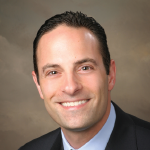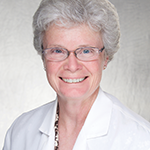“If you are a solo practitioner, an unplanned—or hastily planned—succession can have some horrible effects, not only on the practice, but also on the doctor’s family and their financial situation,” says Mr. Mann. “Should something happen to a large group, it is certainly not a good thing, but the practice can generally withstand that. Succession can be a big issue for two- or three-member practices, but is not as likely to be practice ending.”
Begin Now
The best time to begin succession planning is immediately. Whether in a single- or multi-person practice, the doctor should focus on some things pretty much from the day they start the job: One is to consider who will be taking over the patients in an emergency situation.

Mr. Keller
“I always encourage solo doctors to reach out to others in the community who might be able to see their patients,” says Mr. Swanson. “Even if you are the only rheumatologist in the area, you [may] be able to make arrangements for the primary care [physician] down the street to cover [for you]. In bigger areas with more rheumatologists, check in with the other specialists in your vicinity, and make reciprocal agreements that are mutually beneficial.”
These interactions may be the basis for selling the practice should an emergency arise. Both solo physicians and smaller group practices could have agreements in place to buy each other out at a set price, if needed. For larger groups, these issues are often addressed in the buy–sell agreements that are put in place in the practice structure agreements between the partners or shareholders.
Whether for an individual, a large group or anything in between, these are decisions that have legal, tax, medical and even personal implications. One is what the practice would be worth if there is a need to transfer.
Distorted Value View
“Physicians have a distorted view of the value of their practice,” says Mr. McElroy. “Location, timing, patient demographics, competition, payer mix and services offered are just some of the factors that can affect market value when trying to sell a practice.”
Your accountant may be able to help you look at comparable practices that have been sold to help you set a price that is realistic. There are also medical practice appraisers available, if needed.
Smaller practices and groups will have a little easier time making emergency plans for physician death or disability. Often, the remaining physicians and/or advanced practice personnel can take over the existing patient panel. If so, agreements should be put in place regarding the distribution of the former partner’s patients, and the money that results, among the remaining physicians.



